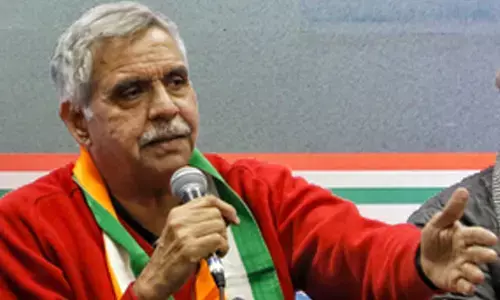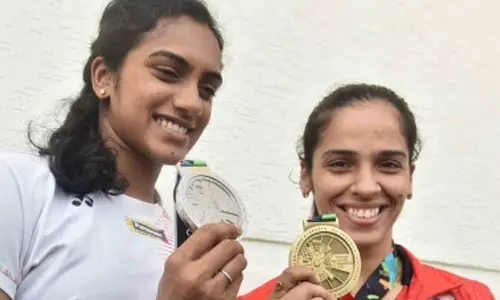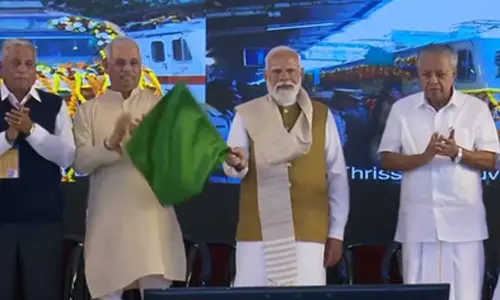Breaking the glass ceiling, a distant dream for cine women

For nearly a decade, more specifically, after the ‘Me Too’ campaign sensationally ripped open the status of women in Indian film industry, the fair sex has been strident in raising its issues and has not been taking the ‘unfair’ treatment meted out to them, lying down.
While opinions are divided on the impact it has created and the much-awaited improvement it has initiated in the glamour world, the pain points: commensurate remuneration to actresses and better characters to exhibit their talent - still remain.
Not surprisingly, a new study, excerpts of which are available in public domain, has revealed a nominal growth in women’s representation in various facets of content production, marketing and corporate leadership within the entertainment industry, leading various film personalities, including actor Alia Bhatt, filmmakers Vikramaditya Motwane and Shakun Batra, to make a pledge to push for more diversity in their projects.
The report, titled ‘O Womaniya!’, has been researched and curated by media consulting firm Ormax Media in collaboration with media outlet Film Companion and streaming service Prime Video. The study analysed 156 films and series, which were released in 2022, either on streaming and through theatrical route, in eight languages -- Hindi, Tamil, Telugu, Malayalam, Kannada, Punjabi, Bengali and Gujarati.
It revealed that only 12 per cent of the 780 head of department positions in various fields like direction, cinematography, editing, writing, and production design were held by women, as compared to 10 per cent in 2021. The study further noted a marginal jump of 5 per cent in the share of female HODs in content greenlit by commissioning in-charges. It was 22 per cent in 2022, up from 17 per cent in 2021.
“The share of female HODs in Hindi content has remained stagnant at 17 per cent. While other languages have shown some positive movement from near-zero levels, Hindi remains the only language with double-digit female HOD representation,” it added. The study also shared its Bechdel Test numbers, the globally accepted parameter for measuring female representation in cinema.
It noted a dip, from 55 per cent in 2021 to 47 per cent in 2022, in the number of projects that aced the test. In order to pass the Bechdel test, a film must have at least one scene where two named women are talking to each other about something other than a man.
For streaming series, given their longer runtime, the criterion was modified to ‘at least three scenes’. Series and films like “Guilty Minds”, “Four More Shots Please!”, “Delhi Crime”, “Maja Ma”, “Gangubai Kathiawadi”, emerged as the titles with maximum scenes to pass the Bechdel Test. The report highlighted the less footage given to women characters in the trailers of shows and movies.
Female characters have only 27 per cent talk time in trailers in 2022, a marginal increase from 2021. “Interestingly, streaming films noted the highest increase of 5 per cent in female trailer talk time, surpassing streaming series to be the best-rated category at 33 per cent. Like HOD representation and Bechdel Test, the streaming category remains well ahead of theatrical on this metric too,” it added.
Lastly, the study revealed that in 25 top media and entertainment firms, having 135 Director and CXO positions, only 13 per cent were held by women, as compared to 10 per cent in 2021.
In light of the report’s findings, actors and filmmakers have voiced their support and took pledges to improve female representation in entertainment. How it will pan out is anybody’s guess at the moment.
















